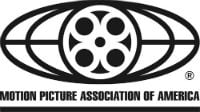 Even after running for weeks, the fallout from the Sony hacking fiasco is showing no signs of waning. In fact in some areas it appears that matters are only getting worse.
Even after running for weeks, the fallout from the Sony hacking fiasco is showing no signs of waning. In fact in some areas it appears that matters are only getting worse.
Earlier this month a TF report revealed how the MPAA (with a SOPA defeat still ringing loudly in its ears) is still intent on bringing website blocking to the United States.
The notion that Hollywood was intent on reintroducing something so unpopular didn’t sit well with critics, but that was only the beginning. A subsequent article in The Verge revealed a campaign by the MPAA to attack “Goliath” – a codeword for Google – by “convincing state prosecutors to take up the fight” against the search giant.
The MPAA budgeted $500,000 for the project with costs potentially rising to $1.175 million. The Hollywood group subsequently called on SOPA-supporting Mississippi State Attorney General Jim Hood to attack Google, which he did.
The New York times has a copy of the letter he sent to the search giant – worryingly it was almost entirely drafted by the MPAA’s lawfirm Jenner and Block.
After a week of “no comment” from Google, the company has just broken its silence. In a statement from SVP and General Counsel Kent Walker, Google questions the MPAA’s judgment over its SOPA-like aims and apparent manipulation of an Attorney General.
“Almost three years ago, millions of Americans helped stop a piece of congressional legislation—supported by the MPAA—called the Stop Online Piracy Act (SOPA). If passed, SOPA would have led to censorship across the web. No wonder that 115,000 websites—including Google—participated in a protest, and over the course of a single day, Congress received more than 8 million phone calls and 4 million emails, as well as getting 10 million petition signatures,” Walker writes.
“We are deeply concerned about recent reports that the Motion Picture Association of America (MPAA) led a secret, coordinated campaign to revive the failed SOPA legislation through other means, and helped manufacture legal arguments in connection with an investigation by Mississippi State Attorney General Jim Hood.”
Then, in what can only be a huge embarrassment for the MPAA and the Attorney General, Walker turns to the letter AG Hood sent to him in 2013.
“The MPAA did the legal legwork for the Mississippi State Attorney General.
The MPAA then pitched Mississippi State Attorney General Jim Hood, an admitted SOPA supporter, and Attorney General Hood sent Google a letter making numerous accusations about the company,” Walker explains.
“The letter was signed by General Hood but was actually drafted by an attorney at Jenner & Block — the MPAA’s law firm. As the New York Times has reported, the letter was only minimally edited by the state Attorney General before he signed it.”
The Google SVP ends with a shot at the MPAA and questions its self-professed position as an upholder of the right to free speech.
“While we of course have serious legal concerns about all of this, one disappointing part of this story is what this all means for the MPAA itself, an organization founded in part ‘to promote and defend the First Amendment and artists’ right to free expression.’ Why, then, is it trying to secretly censor the Internet?” Walker concludes.
Without delay, Google’s public comments were pounced upon by the MPAA who quickly published a statement of their own. It pulls no punches.
“Google’s effort to position itself as a defender of free speech is shameful. Freedom of speech should never be used as a shield for unlawful activities and the internet is not a license to steal,” the statement begins.
“Google’s blog post today is a transparent attempt to deflect focus from its own conduct and to shift attention from legitimate and important ongoing investigations by state attorneys general into the role of Google Search in enabling and facilitating illegal conduct – including illicit drug purchases, human trafficking and fraudulent documents as well as theft of intellectual property.”
And, in a clear indication that the MPAA feels it acted appropriately, the Hollywood group lets Google know that nothing will change.
“We will seek the assistance of any and all government agencies, whether federal, state or local, to protect the rights of all involved in creative activities,” the MPAA concludes.
The statements by both Google and the MPAA indicate that in this fight the gloves are now well and truly off. Will ‘David’ slay ‘Goliath’? Who will get hurt in the crossfire?





